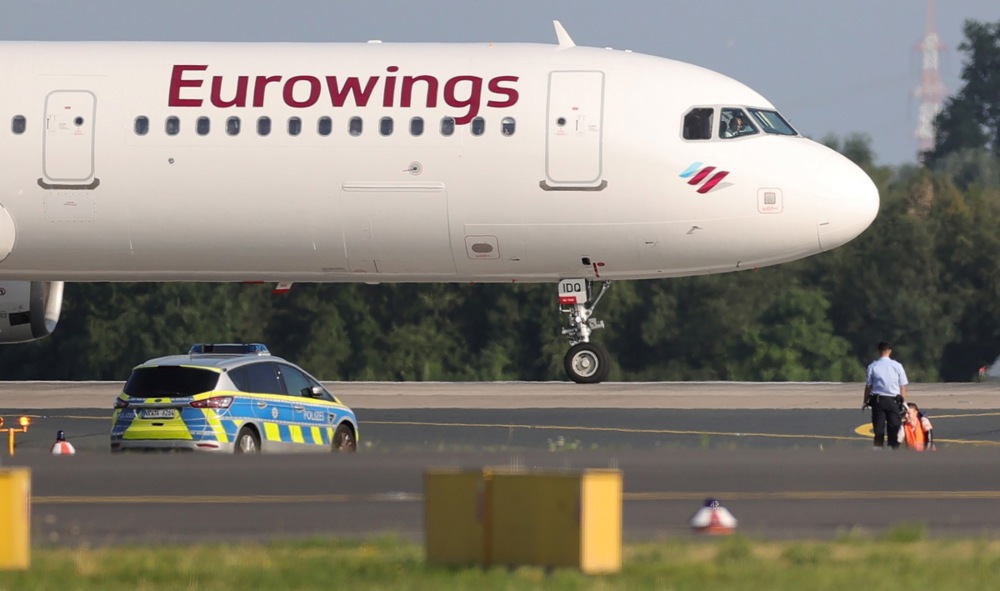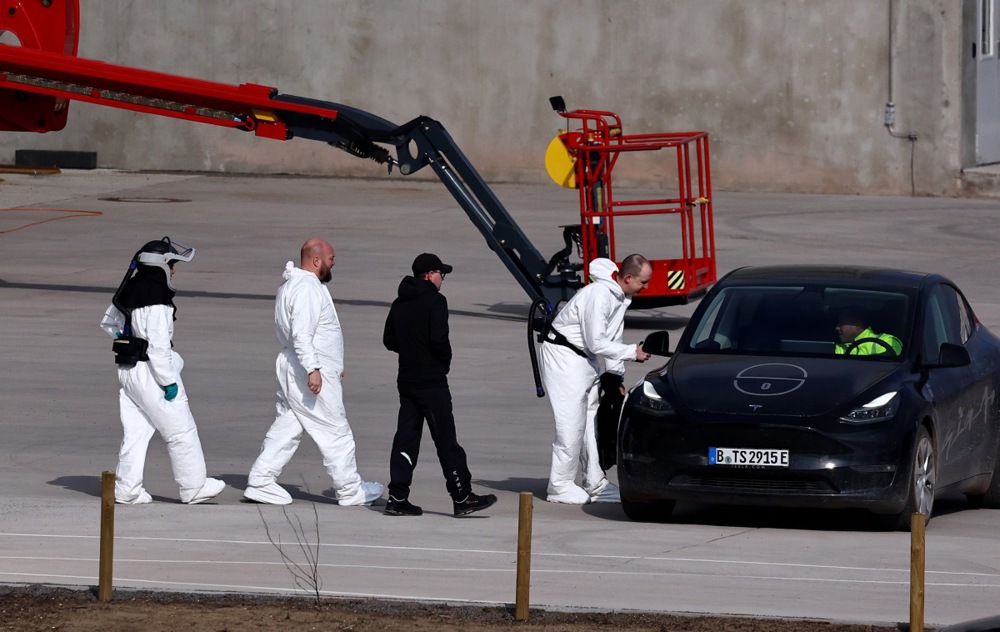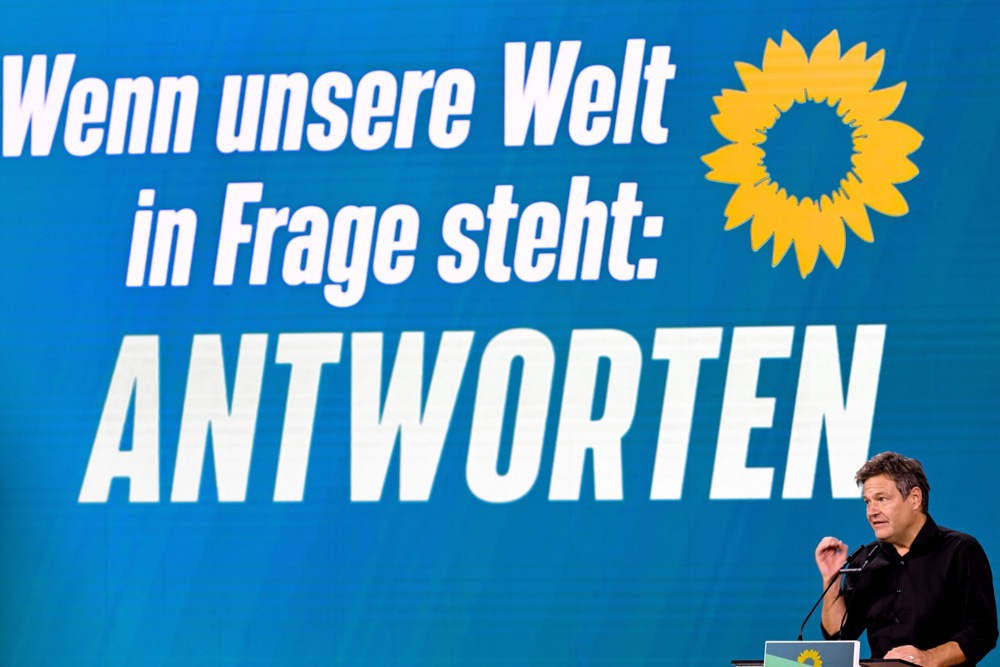The President of Botswana is threatening to send 20,000 elephants to Germany.
Mokgweetsi Masisi is irked by environmental legislation in Germany with Berlin imposing limits on hunting and nature conservation in Africa.
Botswana is struggling with an excess of elephants. Hunting is seen as a solution for this, giving local communities an incentive to keep the animals’ population at a suitably sustainable level but in check.
Environmentalists in Europe are seemingly not interested in that view and squarely oppose hunting as they push for limits on the practice, particularly regarding so-called “trophy hunting”.
Germany is planning to vote-in such a ban but African governments are fighting back.
Masisi’s threat to send 20,000 elephants to Germany “is not a joke”, he told German newspaper BILD.
Today, he claims, Botswana is home to more than 130,000 elephants, with that increasing by 6,000 a year, which he thinks is too high for the country to adequately support. It has already transported 8,000 of the animals from the cross-border Kavango-Zambezi conservation area to Angola and it will also send others to Mozambique.
“And in the same way, we would like to make such an offer to Germany. We don’t take no for an answer,” Masisi told BILD, calling the situation “deadly serious”.
He stressed numbers of his countrymen are trampled to death by the huge animals, that crops are ruined and that elephants have even destroyed entire villages.
For that reason, he wants hunters to keep the elephant population in check. Some 40 per cent of Botswana’s land is dedicated for wildlife, much more than in Germany.
Masisi said German politicians who vote to ban trophy-hunting in Botswana do not have elephants “in their backyard”. He said he wanted to change that, so they can appreciate the challenges of living with such animals.
“We want our elephants to roam freely. The German weather is bad enough for them,” Masisi said, stating he wondered how The Greens environment minister Steffi Lemke would handle such a situation.
“It is very easy to sit in Berlin and have an opinion on our affairs in Botswana. We are paying the price for preserving these animals for the world – and even for Lemke’s party,” he said.
Botswana, together with Namibia, is trying to convince Germany to stop the proposed plans to ban the import of trophies from the hunting of elephant and other species.
After meeting Lemke recently, Botswana’s environmental minister Dumezdweni Mthimkhulu said: “The Greens look at us with contempt.”
The African delegation warned the Germans that an import ban on hunting trophies would cause economic loss at home. They further warned that the local population might resort to shooting elephants in huge numbers as they would lose their commercial value and simply become a threat to livelihoods and safety.
The Greens in particular are accused by the Africans of ignoring science and facts of nature conservation.
Botswana had an all-out ban on hunting between 2014 and 2019 but that resulted in a significant increase in poaching, causing the population of elephants to drop. This was reversed after hunting tourism was allowed again.
Mthimkhulu told BILD: “The Greens should take our views seriously and listen to us. The animals they supposedly want to protect will disappear. The Greens are destructive.”
Namibia’s Environment Minister Pohamba Shifeta spoke of “an illegal, neo-colonial interference that runs counter to the international legal situation”.
Maxi Louis, director of the nature reserve and conservation association NACSO, told BILD that well-meaning Europeans were causing damage in African countries and were dismissive of arguments against their viewpoints.
“With their project, The Greens are falling back into the colonialism of the 19th Century,” he said. “These people have the audacity to tell an African country what to do. This is a racist attitude and a racist behaviour towards us.”
Louis, a former anti-apartheid activist, invited Lemke and German foreign affairs minister Annalena Baerbock to visit Namibia. “Let’s sit together like civilised people and discuss this. We then explain to them how we protect wild species in Africa,” he said.
“We want them to listen to us and our communities.”
Heike Henderson of the board of management of Future for Elephants, an environmental organisation focused on elephants, told Brussels Signal: “Elephants are an endangered species whose numbers have fallen from around 10 million a hundred years ago to less than 500,000.”
Contrary to the African dignitaries, she pointed to numbers she said showed the elephant population was much more stable, refuting reports of excessive growth. “Elephants in Africa now only live in 17 per cent of their potential available habitat,” she said.
She praised former Botswanan president Ian Khama “who not only implemented consistent conservation measures but also ended trophy hunting in 2014 – as Kenya did in the 1970s – and promoted photo tourism”.
Henderson said that, since Botswana reinstated trophy hunting under Masisi, the poaching of rhinos and elephants has increased.
She added that “trophy hunting, which numerous African and international animal and species conservation organisations believe does not contribute to species conservation, is not suitable for population control and does not significantly benefit the rural population”.
“The killing of highly socialised animals for profit and the desire to kill does not fit in with our times,” she said, pointing to so-called bloodless alternatives.
Henderson noted that trophy imports from Botswana to Germany are very low at just 22 for elephants and one leopard since 2019.
“On the other hand, Germany also financially supports a wide range of species conservation efforts,” she added.
Brussels Signal reached out to the The Greens for comment but they declined “due to capacity reasons”.
David Scallan, Secretary General of FACE, the European Federation for Hunting and Conservation, told Brussels Signal that the subject of hunting trophies formed part of sustainable hunting.
“Which has been proven to deliver a range of benefits to conservation, including support for habitat restoration, anti-poaching efforts and human-wildlife conflict reduction,” he said.
“Further, the movement of hunting trophies is well-regulated at the EU and international levels, and recent polls show that a majority of Europeans support the keeping of hunting trophies.
“FACE shares the views of the International Union for Conservation of Nature (IUCN) briefing paper, which states that ‘trophy hunting … can and does generate critically needed incentives and revenue for government, private and community landowners to maintain and restore wildlife as a land use and to carry out conservation actions.’”
Less than a year ago, the European Commission concurred with that view.
Scallan cited Rosie Cooney, the previous chair of the IUCN’s Sustainable Use and Livelihoods Specialist Group, who has said: “There’s only two places on the earth where wildlife at a large scale has actually increased in the 20th Century – and those are North America and Southern Africa.
“Both of those models of conservation were built around hunting.”





